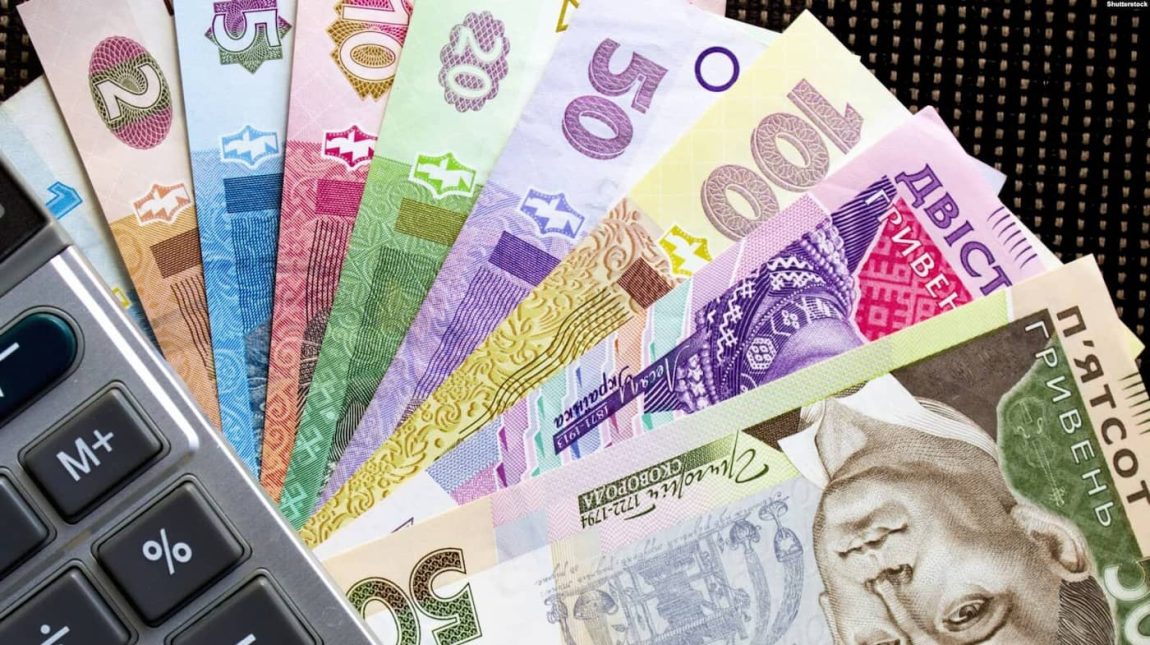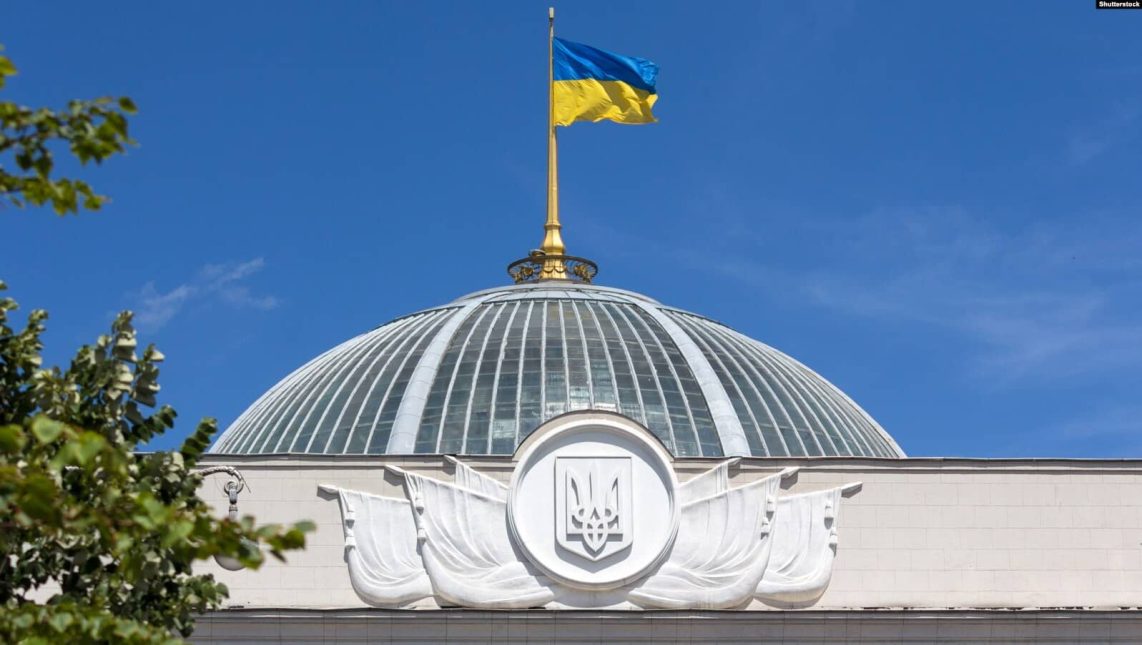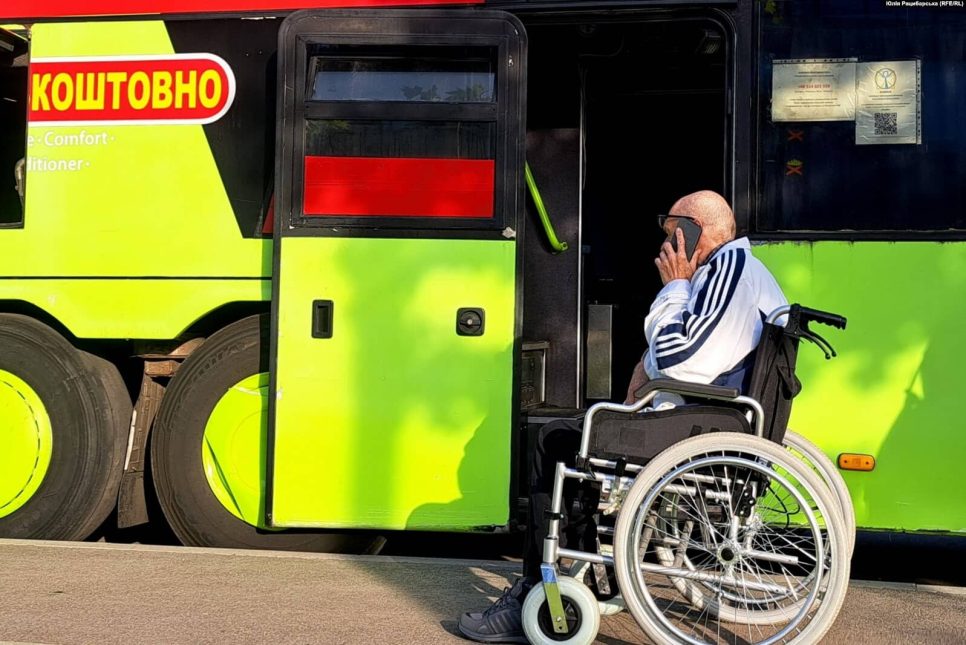
Tax information exchange between countries: What does it mean for Ukrainian refugees?
The automatic exchange of tax data between Ukraine and over 100 countries was introduced this fall. The procedure began on September 30 and applies to countries that are part of the international movement known as the Common Reporting Standard (CRS), which aims to ensure a transparent international tax environment. This means that starting this year, both Ukrainian and foreign tax authorities will annually receive data on the income and foreign accounts of their residents.
Why might these innovations affect millions of Ukrainians who have found shelter abroad? How is tax residency determined? When and what might the consequences be for refugees? Radio Svoboda’s project “How are you?” explores the implications of this new system.
Tax information exchange: what does it mean?
The Common Reporting Standard (CRS) provides for the annual exchange of information about certain types of financial accounts between countries. This exchange happens between countries that have joined the Multilateral Competent Authority Agreement on Automatic Exchange of Financial Account Information, according to the website of the Finance Ministry of Ukraine. It was adopted by the Council of the Organization for Economic Co-operation and Development (OECD) on July 15, 2014.

The Ukrainian government sent a letter to the OECD Secretariat in August 2021 expressing its intention to join the Multilateral Agreement and implement the automatic exchange of financial account information.
Almost 18 months later, the Verkhovna Rada adopted a law on the transfer of such data. The Global Forum on Transparency and Exchange of Information for Tax Purposes and the European Union Public Finance Management Support Programme for Ukraine helped implement CRS into Ukrainian practice. The goal of this global movement is to ensure a more transparent tax environment and implement international standards for transparency and information exchange.
The Finance Ministry explains this step as part of Ukraine’s obligations in the process of integration into the European Union. Such an exchange will also help increase the transparency of financial transactions and combat tax evasion, the ministry says.

This means that starting this year, the Ukrainian tax authorities will annually receive data on the financial accounts of its tax residents held by financial institutions (banks, insurance and investment companies) from abroad. The data will include information on account balances, interest income, and dividends. In return, Ukraine will provide such information to partner countries about their residents.
As of January 2024, about 110 countries, including all EU member states, are parties to the multilateral agreement on the exchange of tax data, where millions of Ukrainians who fled Russian aggression have found shelter.
What data will be handed over?
- First and last name of the bank account holder
- Address
- Tax residency
- Tax identification number
- Date and place of birth
- Information about the financial institution where the account is held
- Account balance (amount of funds as of the end of the reporting period, total amount of dividends, interest, or other income).
First exchange completed
The first data exchange between tax authorities of different countries occurred on September 30, 2024. Tax authorities in Ukraine received information about new accounts opened abroad by their residents between July 1 and December 31, 2023. This means that if a refugee opened a new account in a participating country during this period, their data were likely included in the exchange.
The exchange also included information about citizens who opened accounts before this period, but only for those with account balances exceeding $1 million.

Yehor Sinitsyn, a partner at the consulting company EBS, explains that the data exchange between tax authorities is not a new procedure:
“CRS is essentially just a mechanism for detecting information. It is important to understand that this is not the only possible detection mechanism; information exchange existed before. If the Ukrainian tax authorities suspected someone of something, they would write a request to another country. It’s a complicated process, and responses to such requests could take six months, or you might not get anything at all.”
For example, the Ukrainian tax authorities could send a request to Poland to find out information about a certain person’s income. The Polish tax authorities would consider it and, if they considered the person to be their resident, they would not provide data. If the financial institution identified the person as a Ukrainian resident, then the information would be provided. Such an exchange could take months. Now, this procedure is automatic when a person’s residency in another country is identified. Then all this data is processed by tax authorities, and if they have questions for the person, they can conduct an audit.

In the event that a refugee opens an account abroad after the specified deadline of December 31, 2023, and the foreign tax authority determines that they are a resident of Ukraine, the Ukrainian tax authority will automatically receive their income data in September 2025, says Olexandra Tomashevska, a consultant at the Kyiv Business Development Support Centre. At that point, they will consider not only account holders with a million dollars in their accounts.
“Our law (‘On Amendments to the Tax Code of Ukraine and Other Legislative Acts of Ukraine Regarding the Implementation of the International Standard for Automatic Exchange of Information on Financial Accounts’ No. 2970-IX of March 20, 2023 – ed.) states that the data exchange requires a breakdown of types of income, rather than merely focusing on every single amount. If my husband replenished my card, it doesn’t necessarily mean that it is my income. There are many questions and few answers in this exchange process. The information that banks must provide to the tax authority, which will later pass it on to another country’s tax authority, must be categorized by income. However, deposits to the card are considered other inflows. They are not classified as an individual’s income; they simply represent a movement of funds. Even if this information is exchanged, the tax authority may send a request saying, ‘What exactly was this? Please provide an explanation,’” says Olexandra Tomashevska.
Determining tax residency
Experts asked by the “How Are You?” project explain that the determining factor in data exchange between different tax authorities is a person’s residency. However, there are many nuances in defining this concept.
Tax residents are individuals who, according to a country’s legislation, are obligated to pay taxes based on their place of permanent residence, presence, registration, receipt of income, or other criteria. Having a Ukrainian passport does not automatically mean you are a resident of Ukraine. Similarly, having accounts in Polish or German banks does not confirm your residency in those countries.

Among the main factors for determining residency are residing in a country for more than 183 days during the calendar year or the location of one’s vital interests. Most Ukrainian citizens who have received temporary shelter in foreign countries have been there for over half a year (more than 183 days).
Yehor Sinitsyn notes that it is likely the Ukrainian tax authorities will continue to consider Ukrainian citizens as their residents, as they only have their Ukrainian tax identification numbers and are unaware of foreign ones, despite these individuals living abroad for a considerable time. He states, “If we delve into the provisions of the double taxation treaties, it is likely that most refugees will have grounds to consider themselves residents of other countries. What could this lead to? The Ukrainian tax authority may attempt to make information requests or conduct checks to identify and tax certain matters in Ukraine.”

In the case of refugees, the determining criterion for tax residency is the centre of vital interests, as stated on the website of the Ukrainian Ombudsman Office. This can include the permanent residence of family members, personal property, or the attendance of children in schools or kindergartens.
Olexandra Tomashevska notes that financial institutions can independently ask their clients about their residency status through questionnaires.
“I believe Ukrainian banks will provide their clients with forms requiring them to specify their tax residency in another country, as well as their place of permanent residence there, effectively asking for current information regarding any other tax residency. Then, banks will collect this information and include it in the data for exchange.
Similarly, this process should occur in foreign banks. If a Ukrainian refugee has an account in a bank in Germany, Poland, or France, that bank will ask, ‘Are you also a tax resident of Ukraine? Please provide your tax number.’ This provides grounds for the foreign bank to send information to its country’s tax authorities, which will automatically exchange it with the Ukrainian tax authority,” Tomashevska explains.
The form for this questionnaire is called CRS-1. It has been approved by the Ministry of Finance and published on the website of the State Tax Service of Ukraine. The form contains questions about residency and tax numbers from other countries. The penalty for submitting knowingly false information is UAH 800,000, as stated in the document.

Olexandra Tomashevska states that for most refugees, navigating the issue of tax residency on their own can be challenging, so leaving this section blank does not always indicate an intentional attempt to provide false information. In her opinion, the Ukrainian tax authority will not conduct investigations into every individual case.
Among the factors that may attract a bank’s attention regarding refugees, according to Yehor Sinitsyn, a partner at the consulting company EBS, are a Ukrainian phone number, email address, a place of residence registered in Ukraine, and a correspondence address. Sinitsyn also suggests that Ukraine may receive information about its residents for the entire year of 2023, rather than just for the second half. Since such data exchanges between different tax authorities have already occurred, it is unlikely that this information will be divided into specific periods for Ukraine, says Yehor Sinitsyn.
What could Ukrainian refugees expect?
Let’s consider specific cases of information exchange between tax authorities that may apply to Ukrainians who are war refugees.
Situation 1:
A Ukrainian is staying in Poland, has found a job there, officially receives a salary from a local company, and pays taxes to that country. What will happen if the Ukrainian tax authorities receive data about their income abroad?
Yehor Sinitsyn, a partner at the consulting company EBS, explains that even if a person indicates that they remain a Ukrainian tax resident, the chances of the Ukrainian tax authorities taxing such income are very low:
“If these are hired employees who moved in 2022–2023, there will simply be an exchange of information, and their foreign salary will be disclosed. If they are officially employed in that country, they pay taxes there; that is where they should pay taxes. The most that can happen is a protracted communication with the tax office, potentially requiring some additional documents. It is definitely necessary to follow all procedures in the country where they are located; this includes contacting local consultants and submitting a local tax declaration, if required. Each time, they need to determine their tax residency status –whether they are still a tax resident of Ukraine or have become a resident of the new country, or if they are considered a temporarily displaced person.”
Situation 2
A Ukrainian has found shelter in Germany but receives a Ukrainian pension or minimum wage. For example, they teach remotely and pay taxes on their salary to the Ukrainian budget. What will happen if Germany determines that this person is a tax resident? Could they lose social welfare in the foreign country?
Olexandra Tomashevska advises refugees to first inquire about taxable income in their host country:
“I recently looked at the Convention on the Avoidance of Double Taxation between Ukraine and Canada. It states that pensions are taxed exclusively in the country where they are paid. The Convention with Germany likely has a similar rule. Why do I say that you always need to look at the specific case, because the pension can be €40, or it can be €400. There are different pensions, there are different rules. For example, it may be that there will be no taxation, but the Germans have the right to cancel some benefits and payments.”

Yehor Sinitsyn adds:
“From a taxation point of view, an income of, say, €300-500 may not interest the German tax authorities. Even if it does, there will most likely be some non-taxable amount. The issue arises when people receive social benefits in their host country while also earning income in Ukraine. These are budget funds, and EU states are very sensitive to how they are spent. When applying for social benefits, you declare that you have no income. This could lead to accountability. It’s important to be truthful when dealing with EU authorities, as providing false information could have serious consequences, including deportation and a ban on entry.”
Situation 3
A person is staying, for example, in Poland, but is registered as an individual entrepreneur (FOP) in Ukraine, works remotely for a Ukrainian company, and earns money as an individual entrepreneur. What will happen if the tax authorities exchange this information?
Experts say that registration as an individual entrepreneur in Ukraine can be a factor in determining a person’s centre of vital interests, even if they live in another country. The money flowing through the individual entrepreneur’s account is considered income. Although the refugee may pay taxes in Ukraine, a foreign country may also claim them. Ukrainians may have to pay the difference if the tax rate is higher in their country of residence.

“Many individual entrepreneurs who are now abroad continue to work as individual entrepreneurs and mistakenly believe that the foreign country will not find out about their earnings,” says Yehor Sinitsyn. “This is not true; the information will be shared, just with a slight delay. This is especially true if the Ukrainian bank where the business account is opened identifies you as a resident of Poland, Slovakia, Spain, or Germany, for example.” Sinitsyn adds that while individuals could choose not to inform the financial institution about working for a Ukrainian company while living in Poland, this would be considered tax evasion.
Olexandra Tomashevska, a consultant at the Kyiv Business Development Support Centre, says that many Ukrainians are closing their individual entrepreneurships in Ukraine and registering as self-employed workers in their country of temporary residence. They continue to work for a Ukrainian company but receive income into a foreign bank account and pay taxes in that country instead of Ukraine.
“If a person is an individual entrepreneur in Ukraine,” says Tomashevska, “they owe taxes on their worldwide income in the country where they reside. The general rule is to choose one country for tax residency to avoid conflicts of interest. Tax issues have no statute of limitations. The fact that you lived in Poland or Ukraine may come up years later. If a country receives information about your income and residency, they can recalculate your taxes for previous years. There’s no escaping it. I know countries where it can be six years, and seven years, and they can recalculate for several years.”
In summary, experts advise refugees to determine their tax residency now to avoid losing social benefits. They should also find out how income is taxed in their country that provided them temporary shelter.
If a citizen of Ukraine decides to temporarily become a resident of Poland, Germany, or any other country, they should file tax returns there, pay taxes in that country, and keep records of their tax payments. If the Ukrainian tax authorities later have questions for such a person, these documents can be provided as proof of compliance, making any information exchange less concerning, experts say.
Media, Publications
-
Deputy Ambassador of the EU on enlargement, reforms and €190 billion in support
-
EU membership in 2030? Deputy Ambassador of the EU answers students’ questions
-
How does the EU take decisions on Ukraine? Subsidiarity, unanimity and consensus among 27 countries
-
What reforms does Ukraine still need to join the EU? Deputy Ambassador of the EU answers
-
How can Ukrainian students become more involved in EU programmes and projects? Deputy Head of the EU Delegation answers
-
Are there alternatives to European integration if the road to the EU is long? Deputy Ambassador of the EU answers